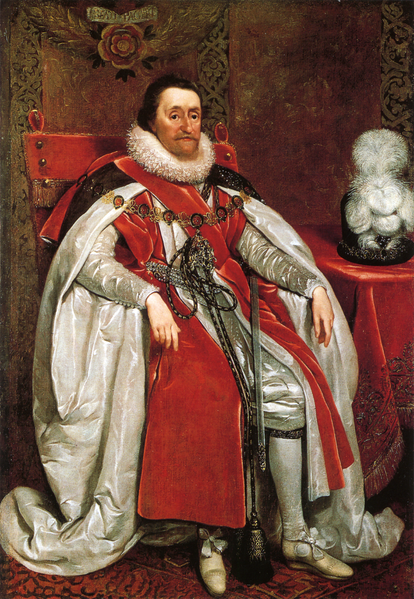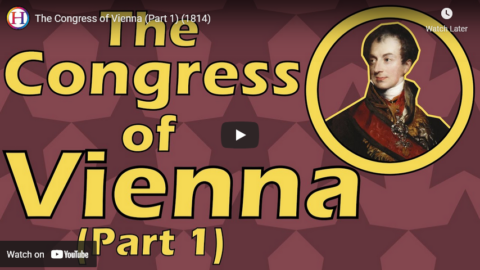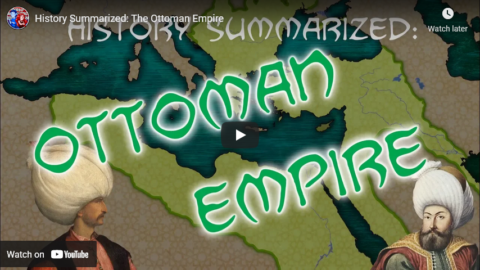Tasting History with Max Miller
Published 16 Feb 2021For information on Svensk Hyllningsfest in Lindsborg, KS, visit https://www.visitlindsborg.com/
Help Support the Channel with Patreon: https://www.patreon.com/tastinghistory
Tasting History Merchandise: crowdmade.com/collections/tastinghistoryFollow Tasting History here:
Instagram: https://www.instagram.com/tastinghist…
Twitter: https://twitter.com/TastingHistory1
Tiktok: TastingHistory
Reddit: r/TastingHistory
Discord: https://discord.gg/d7nbEpyLINKS TO INGREDIENTS & EQUIPMENT**
Sony Alpha 7C Camera: https://amzn.to/2MQbNTK
Sigma 24-70mm f/2.8 Lens: https://amzn.to/35tjyoW
Silpat: https://amzn.to/3rFIFxM
KitchenAid 8-Quart Stand Mixer: https://amzn.to/3cTfbs1LINKS TO SOURCES**
Hjelpreda I Hushållningen För Unga Fruentimber by Cajsa Warg: https://gupea.ub.gu.se/handle/2077/41…
A Journey Through Swedish history by Herman Lindqvist: https://amzn.to/2Z0D3Sb
The world of Cajsa Andersdotter by Bengt Hällgren: https://amzn.to/3jKNMKl**Amazon offers a small commission on products sold through their affiliate links, so each purchase made from this link, whether this product or another, will help to support this channel with no additional cost to you.
Subtitles: Jose Mendoza
#tastinghistory #semlor #semla #fattuesday
February 8, 2022
Semlor: The Dessert That Killed A King
February 2, 2022
The Congress of Vienna (Part 1) (1814)
Historia Civilis
Published 29 Jan 2022Patreon | http://historiacivilis.com/patreon
Donate | http://historiacivilis.com/donate
Merch | historiacivilis.com/merch
Mailing List | http://historiacivilis.com/mailinglist
Twitter | http://historiacivilis.com/twitter
Website | http://historiacivilis.comSources:
Wolfram Siemann, Metternich: Strategist and Visionary | https://amzn.to/3Glc5c8
Eric Hobsbawm, The Age of Revolution, 1789-1848 | https://amzn.to/3zOQWV4
Adam Zamoyski, Rites of Peace: The Fall of Napoleon and the Congress of Vienna | https://amzn.to/3zSpcir
Richard J. Evans, The Pursuit of Power: Europe 1815-1914 | https://amzn.to/3qhFE8G
A. Wess Mitchell, The Grand Strategy of the Habsburg Empire | https://amzn.to/332Sorj
Robert K. Massie, Dreadnought: Britain, Germany, and the Coming of the Great War | https://amzn.to/3r6jllP
—
N. Gash, “After Waterloo: British Society and the Legacy of the Napoleonic Wars”, from Transactions of the Royal Historical Society, vol. 28, 1978, pp. 145-157. | https://www.jstor.org/stable/3679205
The Annual Register, 1815, Preface | https://hdl.handle.net/2027/mdp.39015…
Voltaire, “An Essay on Universal History, the Manners, and Spirit of Nations” | https://amzn.to/34BGbtL
The History of Parliament: The 5th Parliament of the United Kingdom | https://www.historyofparliamentonline…Music:
“Like,” by Nctrnm
“But Enough About Me Bill Paxton,” by Chris Zabriskie
“I Don’t See the Branches, I See the Leaves,” by Chris Zabriskie
“Orion,” by Josh Stewart
“CGI Snake,” by Chris Zabriskie
“Gown,” by Nctrnm
“Hallon,” by Christian BjoerklundWe are a participant in the Amazon Services LLC Associates Program, an affiliate advertising program designed to provide a means for us to earn fees by linking to Amazon.com and affiliated sites.
January 24, 2022
David Starkey – The Churchills episode 3
Whitehall Moll History Clips
Published 29 May 2019How did Winston Churchill draw on the lessons of his ancestor John Churchill to fight World War II? The Duke of Marlborough’s influence is apparent as Dr David Starkey explains
January 23, 2022
The Abandoned Hill With Two Members Of Parliament
Tom Scott
Published 6 Jul 2020Old Sarum, in Wiltshire, is a now-desolate hillfort run by English Heritage. But it was once one of the most important sites in southern England: so important that it had two members of Parliament. Then, it became a “rotten borough”: and a warning about power.
Thanks to English Heritage: more information and how to visit: https://www.english-heritage.org.uk/v…
Research and script assistance from Jess Jewell
Drone camera by Jamie Bellinger
Edited by Michelle Martin: https://twitter.com/mrsmmartin
Audio mix by Graham Haerther: https://haerther.netFilmed safely, following all local and national guidance: https://www.tomscott.com/safe/
SOURCES:
Corfield, P. (2000). Power and the professions in Britain 1700-1850. London: Routledge.Dodsworth, W. (1814). An historical description of the cathedral church of Salisbury: including an account of the monuments, chiefly extracted from Gough’s “Sepulchral Monuments,” and other authentic documents: also, biographical memoirs of the Bishops of Salisbury, from the earliest period by W. Dodsworth, verger of the Cathedral
English Heritage’s own research page: https://www.english-heritage.org.uk/v…
http://www.historyhome.co.uk/c-eight/…
I’m at https://tomscott.com
on Twitter at https://twitter.com/tomscott
and on Instagram as tomscottgo
January 22, 2022
James I and his experiment with “personal rule”
In the latest Age of Invention newsletter, Anton Howes explains why King James I grew frustrated in his dealings with Parliament and decided to avoid calling that body into session and ruling the kingdom directly:

King James I (of England) and VI (of Scotland)
Portrait by Daniel Myrtens, 1621 from the National Portrait Gallery via Wikimedia Commons.
By the end of 1610, James’s disillusionment with the House of Commons was complete — it was, he said, after six years of fruitlessly wrangling for parliamentary taxes, like a “House of Hell”.
So, despite failing to reach a permanent financial settlement, James decided to try to rule without it. His debts were huge, and his deficit substantial. But after the failure of 1610 he would do everything he could to never have to summon a Parliament again. Although he couldn’t actually afford it, he decided to try ruling as an absolutist monarch anyway — to embark on “personal rule”.
This extraordinary decision, to be an absolutist ruler without adequate financial support, would have dramatic consequences for England’s foreign policy, and perhaps on the whole balance of Europe too. James had already tried to reduce the costs of war when he came to the throne in 1603, by immediately concluding a peace with the vast Spanish Empire. Yet peace now became a necessity — if he couldn’t even plug the deficit during peacetime, he could not possibly pay for a war. Recognising this, Spain intervened freely in the affairs of the Protestant German states, confident that England would not be able to come to their aid.
To make matters worse, James’s financial woes made him especially susceptible to foreign influence. A poor king could be bought. Some of the smaller but wealthier European dynasties began to offer James large sums for his children’s hands in marriage. In 1611, the duke of Savoy offered a vast dowry of £210,000 for his daughter to marry James’s eldest son and heir, Prince Henry. The notoriously wealthy grand duke of Tuscany even put in a bid for £300,000. France then offered £240,000 — not as high, but it had the greater status as a kingdom. Any of these amounts would have plugged the deficit for a few years, even if they were nowhere near to eliminating James’s debt. Yet Henry died in 1612 at the age of eighteen, before any match was agreed, and James’s new heir Charles was much younger and sickly. There was now no rush, so the bidding war ceased. Indeed, by 1616 Charles had given England’s rivals yet another way to influence its king. The Spanish Hapsburgs dangled the prospect of a gigantic dowry of £600,000, but dragged their feet in negotiations, keeping James focused for as long as they could on trying to keep them sweet.
In the meantime, with Henry’s death denying him an immediate windfall, James in 1613 turned [to] Ireland. The Irish Parliament had not been summoned for over a quarter of a century, but it could be a way to reduce the costs of the occupation of Ireland and even raise some funds. The Parliament was initially a disaster. James had flagrantly gerrymandered a Protestant majority by chartering dozens of new towns, particularly in the English plantations in Ulster. Each new town was a borough constituency able to choose its own MPs, and James could even select their initial members — especially in cases where the towns were actually only tiny villages. In protest, the Catholic MPs refused to even recognise the new borough MPs, so each side elected their own Speaker. The Catholic Speaker was only forced out of the chair when the Protestant Speaker was hoisted onto his lap. Nonetheless, although James was legally entitled to create as many new boroughs as he liked, he soon compromised and in 1615 the Irish Parliament ended up voting him some cash.
But the delays forced James’s hand, and in 1614 he briefly suspended his foray into personal rule by summoning the English Parliament again. He needn’t have bothered. Having embarked on personal rule, James had doubled down on legally dubious ways of raising cash, like imposing new customs duties without parliamentary approval — measures that had already been deeply unpopular with MPs in 1610. This time, the Parliament lasted just two months and two days before James dissolved it in a rage — the House of Hell had proved even more impudent than before. One of the veteran opposition leaders, Sir Edwin Sandys, went so far as to explicitly compare James’s impositions on trade to tyranny, before reminding the Commons that tyrants often met a bloody end. When the Parliament was dissolved, the king had MPs’ notes on impositions burned, and a few of the ringleaders were even briefly imprisoned. But with the dissolution of Parliament, which had not voted him any cash, he was still none the richer.
January 21, 2022
Why Wilhelm I Didn’t Want To Be German Emperor
Real Time History
Published 20 Jan 2022Get the Smartest Bundle in Streaming: https://smartbundle.com/thegreatwarsb
The proclamation of the German Empire on 18 January 1871 is usually portraited as a glorious ceremony. Most people associated it with the famous paintings from Anton von Werner. But the ceremony itself was far from well organized and the soon-to-be Emperor Wilhlem I himself was not to thrilled about the whole affair.
» THANK YOU TO OUR CO-PRODUCERS
John Ozment, James Darcangelo, Jacob Carter Landt, Thomas Brendan, Kurt Gillies, Scott Deederly, John Belland, Adam Smith, Taylor Allen, Rustem Sharipov, Christoph Wolf, Simen Røste, Marcus Bondura, Ramon Rijkhoek, Theodore Patrick Shannon, Philip Schoffman, Avi Woolf,» OUR PODCAST
https://realtimehistory.net/podcast – interviews with historians and background info for the show.» LITERATURE
Arand, Tobias: 1870/71. Der Deutsch-Französische Krieg erzählt in Einzelschicksalen. Hamburg 2018Bartmann, Dominik (Hrsg.): “Ausst.-Kat. DHM‚ Anton von Werner. Geschichte in Bildern.” Berlin 1993
Bauer, Gerhard u.a. (Hrsg.): Ausst.-Kat. MHM Dresden “Krieg – Macht – Nation. Wie das deutsche Kaiserreich entstand”. Dresden 2020
Bühl-Gramer, Charlotte: Anton von Werner – “Die Proklamierung des Deutschen Kaiserreichs 1871”, in: Der Europäische Bildersaal. Europa und seine Bilder, hrsg. v. Michael Wobring und Susanne Popp. Schwalbach/Ts. 2014. S. 86-97
Gouttman, Alain: La grande défaite. 1870-1871. Paris 2015
» SOURCES
Deuerlein, Ernst: Die Gründung des Deutschen Reichs 1870/71 in Augenzeugenberichten. Gerlingen 2011 (Neuauflage)Goncourt, Edmond de: Journal des Goncourts. II.1. 1870-1871. Paris 1890
Meisner, Heinrich Otto (Hrsg.): Kaiser Friedrich III. Das Kriegstagebuch von 1870/71. Berlin, Leipzig 1926
Merkelbach, Thea (Hrsg.): Ferdinand Viebig. Der Krieg 1870/71. Aus den Erinnerungen eines preußischen Offiziers. Zell/Mosel 2021
N.N. (Hrsg.): Bismarcks Briefe an seine Gattin aus dem Kriege 1870/71. Stuttgart, Berlin 1903
Werner, Anton von: Erlebnisse und Eindrücke 1870-1890. Berlin 1913
» OUR STORE
Website: https://realtimehistory.net»CREDITS
Presented by: Jesse Alexander
Written by: Cathérine Pfauth, Prof. Dr. Tobias Arand, Jesse Alexander
Director: Toni Steller & Florian Wittig
Director of Photography: Toni Steller
Sound: Above Zero
Editing: Toni Steller
Motion Design: Philipp Appelt
Mixing, Mastering & Sound Design: http://above-zero.com
Maps: Battlefield Design
Research by: Cathérine Pfauth, Prof. Dr. Tobias Arand
Fact checking: Cathérine Pfauth, Prof. Dr. Tobias ArandChannel Design: Battlefield Design
Contains licensed material by getty images
All rights reserved – Real Time History GmbH 2022
January 20, 2022
David Starkey — The Churchills episode 2
Whitehall Moll History Clips
Published 11 Feb 2019Dr David Starkey reveals how Winston Churchill’s biography of his ancestor John Churchill marked out Winston as the only politician who truly understood war — just as WWII loomed.
January 18, 2022
David Starkey – The Churchills episode 1
Whitehall Moll History Clips
Published 7 Jan 2019David Starkey weaves the stories of two great British war leaders: John and Winston Churchill. Hear how John Churchill rose from obscurity to be King James II’s right-hand man.
January 10, 2022
QotD: Absolute monarchs versus modern bureaucracy
As Tocqueville wrote: “There was a time in Europe in which the law, as well as the consent of the people, clothed kings with a power almost without limits. But almost never did it happen that they made use of it.”
True. His Majesty was an absolute tyrant — in theory. But in practice he was in his palace hundreds of miles away. A pantalooned emissary might come prancing into your dooryard once every half-decade and give you a hard time, but for the most part you got on with your life relatively undisturbed. In Tocqueville’s words:
Although the entire government of the empire was concentrated in the hands of the emperor alone, and although he remained, in time of need, the arbiter of all things, the details of social life and of individual existence ordinarily escaped his control.
Just so. You were the mean and worthless subject of a cruel and mercurial despot but, even if he wanted to, he lacked the means to micro-regulate your life in every aspect. Yet what would happen, Tocqueville wondered, if administrative capability were to evolve to make it possible “to subject all of his subjects to the details of a uniform set of regulations”?
That moment has now arrived.
Mark Steyn, After America, 2011.
January 8, 2022
The Board of Green Cloth — the original “we investigated ourselves and found us innocent” organization
In the latest Age of Invention newsletter, Anton Howes explains how England managed to avoid the first attempt by King James I to impose absolute monarchy — that is, putting the Stuart notions of the “divine right of kings” in place of royal powers limited by the Parliamentary control of the royal income:

King James I (of England) and VI (of Scotland)
Portrait by Daniel Myrtens, 1621 from the National Portrait Gallery via Wikimedia Commons.
The year 1610 might by the most under-rated year in British history. It was the year in which England almost became a more permanent absolutist monarchy. Had things gone only a little differently, King James I might have obtained a substantial annual income — enough to pay off his debts within just a few years, to run a substantial surplus, and perhaps even to never have to summon a Parliament ever again. Over the course of a few decades, so long as they didn’t require too many extraordinary taxes to pay for one-off wars, the Stuart kings could have ruled without challenge, issuing proclamations that would have gradually taken on the force of laws.
[…]
As we saw in the last instalment of this series, James I’s finances were desperate. His predecessor had left him substantial war debts, and he was running a large deficit, so the chances of repaying them anytime soon were slim. So in 1604 he had summoned a Parliament with the aim of making a financial deal. Parliaments were typically called in order for the monarch to raise one-off, extraordinary taxes, usually in times of rebellion or war. Rather confusingly from today’s perspective, these taxes were known as “subsidies”, because they were a subsidy to the Crown. Yet James and his ministers wanted Parliament to instead establish peacetime taxes that would be both ongoing and ordinary — what came to be known as “support”. The deal was that he would give up some of his least popular feudal prerogative rights in return.
The House of Commons did not go for the deal in 1604, as we saw. They may have hated feudal obligations like purveyance or wardship — the requisitioning of goods for the court, and the Crown’s control of noble heirs whose fathers had died before they came of age — but they also saw some major risks in trying to make a deal with the king.
When it came to the matter of purveyance, for example, many members of Parliament wanted to stamp out the abuses rather than see the institution abolished. They thought it perfectly legal for the Crown to compulsorily purchase goods, and even to requisition the carts to carry them. What they complained of was that many purveyors were failing to give compensation immediately, and that corrupt purveyors were sometimes taking more than was required, pocketing the difference for themselves. Many MPs also argued that there was no legal basis for purveyors to determine their own prices for the provisions that they seized — a privilege that the Crown adamantly insisted upon.
James’s predecessor Queen Elizabeth I had granted a concession over patent disputes — “patents” at that time were a rather different and much wider legal notion than our more product-oriented modern patents: the monarch granted patents to assign lands and titles, appoint officials, create cities or guilds, or to allow monopoly privileges over an economic resource among other purposes. The concession was that patent disputes would be litigated in common-law courts rather than by royally appointed judges.
Yet by extending the jurisdiction of the common-law courts to monopolies, Elizabeth opened the floodgates of complaints against all prerogative courts — especially against the court of royal household officials responsible for commissioning the purveyors, known as the Board of Green Cloth.
To Hyde and his followers, this court was especially corrupt. Whereas the trying of monopoly patents had at least been done in the more general prerogative courts, anyone hauled before the Green Cloth for denying the purveyors was effectively being tried, judged, fined, and even imprisoned, by the very organisation that was accusing them. Even if purveyors really were acting illegally by naming their own prices, as opponents maintained, there would be no justice so long as the purveyors effectively judged themselves. For Hyde and his allies then, they wished to do to purveyance what they had done to monopolies — to subject them to the common law.
January 5, 2022
History Summarized: The Ottoman Empire
Overly Sarcastic Productions
Published 5 Oct 2018Leave it to the furniture boys to pioneer a Comfort-First attitude towards Imperialism.
Join Blue in investigating the history of the Ottoman empire, and find out why “The Sick Man of Europe” is more than their nickname implies.
Further reading: Osman’s Dream by Caroline Finkel
Famous Turkish Song — Gunduz Gece: https://www.youtube.com/watch?v=2UcbH…
PATREON: www.patreon.com/OSP
MERCH LINKS:
Shirts – https://overlysarcasticproducts.threa…
All the other stuff – http://www.cafepress.com/OverlySarcas…Find us on Twitter @OSPYouTube!
December 29, 2021
A history of and my first go at MEDIEVAL TENNIS
Lindybeige
Published 28 Sep 2021Thanks to Audible for sponsoring this video. New Audible members get a 30-day free trial. Visit http://audible.com/lindybeige or text “lindybeige” to 500 500 to try Audible today.
Tennis is a very old sport, going back at least to the 1200s. Here I try my hand at it for the very first (but not last) time, and talk about the history of it a bit.
Many thanks to Jesmond Dene Real Tennis Club (https://www.jdrtc.co.uk) where this was shot.
Editing this took a LONG time. We had three cameras recording at the same time, and synching the footage up took an age. The sound consisted mainly of echoing footsteps and ball bounces, and the fact that the main microphone kept glitching did not help (you will notice some of the patches to the sound using other mics, but most I made fairly smooth).
Court map by Atethnekos at English Wikipedia, CC BY-SA 3.0, https://commons.wikimedia.org/w/index…
Anne Boleyn picture by English school – https://thetudortravelguide.com/2019/…, Public Domain, https://commons.wikimedia.org/w/index…
Support me on Patreon: https://www.patreon.com/Lindybeige
Buy the music – the music played at the end of my videos is now available here: https://lindybeige.bandcamp.com/track…
Buy tat (merch):
https://outloudmerch.com/collections/…Lindybeige: a channel of archaeology, ancient and medieval warfare, rants, swing dance, travelogues, evolution, and whatever else occurs to me to make.
▼ Follow me…
Twitter: https://twitter.com/Lindybeige I may have some drivel to contribute to the Twittersphere, plus you get notice of uploads.
My website:
http://www.LloydianAspects.co.uk
December 27, 2021
Prince Philip was born in Greece, but was never “of Greece”
Aris Roussinos outlines the surprisingly complex history of Prince Philip’s family in Greece and explains why His Royal Highness could never really be considered Greek, despite the tabloid nickname “Phil the Greek”:

HRH Prince Philip, the Duke of Edinburgh, Colonel-in-Chief of the Royal Canadian Regiment, presenting the 3rd Battalion with their Regimental Colours, 17 April 2013. (via Wikipedia)
Though most people know that Prince Philip was born in Greece and almost immediately exiled, the precise circumstances of this leaving of his native country are surprisingly obscure. How many are aware, for example, that if Ataturk had lost the 1921 Battle of the Sakarya River, outside Ankara, not only would modern Turkey not exist, but neither would Princes Charles, William and Harry?
The existence of our future kings is the chance product of the tumult accompanying the collapse of the Ottoman Empire. It is a dramatic illustration of the Butterfly Effect, whereby random events on one corner of the European continent totally reshaped timelines on the other: indeed, we could declare the prime mover in the events that placed the Duke of Edinburgh as our Queen’s consort to be an aggrieved Greek monkey.
On 2 October, 1920, Prince Philip’s uncle, King Alexander of Greece, was taking the air in the grounds of the royal palace of Tatoi, outside Athens. His German Shepherd dog, Fritz, attacked a Barbary Macaque belonging to a member of his staff. As the King rushed to extract the screaming monkey from Fritz’s jaws, the macaque’s furious mate sunk its teeth into the king’s leg. Alexander contracted sepsis, and died just over three weeks later, throwing Greece into a succession crisis, and totally reordering the subsequent history of the Near East. As Churchill later wrote, “it is perhaps no exaggeration to remark that a quarter of a million persons died of this monkey’s bite”.
King Alexander’s septic leg, like the rest of the Greek royal family, possessed not a drop of Hellenic blood — something Prince Philip reportedly made clear to a Greek visitor to Buckingham Palace who dared to claim ethnic kinship with his host. Back when the small Balkan nation finally won its independence from the Ottoman Empire, in 1831, the European Great Powers had decided on the Bavarian Wittelsbach dynasty to rule the poor and volatile Greeks. When the Wittelsbach King Otto was forced from his throne by the revolution of 1862, the Great Powers reconvened, and chose the 17-year old Prince William of Denmark, Prince Philip’s grandfather, as Greece’s new king. As he would later instruct his children, “You must never forget that you are foreigners in this country, but you must make them [the Greeks] forget it.”
After the disastrous war against the Turks, six military leaders were tried and executed by firing squad, and Prince Philip’s father Prince Andrew, was accused of disobeying an order while in command of a Greek corps:
As the historian Michael Llewellyn-Smith noted in his excellent book on Greece’s Asia Minor campaign Ionian Vision, “whether or not Andrew had been guilty of insubordination, it was an absurd charge to bring fifteen months after the event, given that he had not been relieved of his command at the time.” On 3 December, Andrew took the stand. A staff officer, Colonel Kalogeras, stated that Andrew had refused to attack despite direct orders. Colonel Sariyannis and General Papoulas both attested that if Andrew had carried out Papoulas’ orders, the Greeks would have won the day at Sakarya. Andrew was unanimously found guilty of disobedience and abandoning his post and sentenced to be stripped of his rank and banished permanently from Greece.
Andrew expected to be executed in his cell at any moment. However, in the background, the Greek revolutionary General Nikaloaos Plastiras, a future three-time Prime Minister of Greece, had been negotiating with the British government, which had broken off formal diplomatic relations with Greece since the execution of the Six. They agreed that Andrew would be permitted to leave Greece on a British warship.
And so, a few months after his birth, Prince Philippos of Greece left Mon Repos, Corfu and Greece on the British destroyer HMS Calypso, along with his mother and father and into a life of exile. Philippos was, famously, carried onto the warship in an orange crate instead of a cot. His father Prince Andrew settled into a life of exile in France, writing a book Towards Disaster, translated by Philip’s mother Princess Alice, which aimed to justify his actions at Sakarya as necessary to avoid a pointless loss of life in a losing battle. When the monarchy was restored in Greece, Andrew refused a commission for Philip in the Hellenic Navy, saying “Never the Greek Navy! In the Greek Navy after a bit they would throw him out – that’s what they did to me, not once, as you know, or twice, but three times!”
Instead, Philip served gallantly in the Royal Navy during the Second World War, and was awarded the Greek War Cross for his actions at Cape Matapan. While his son Prince Charles became a benefactor of the Greek monastic republic of Mount Athos and frequent visitor to Corfu, and who is widely considered to be a Phillhellene with a strong mystical attachment to the Greek Orthodox faith of his grandparents, Prince Philip described himself as “a discredited Balkan prince of no particular merit or distinction”. For despite his nickname as “Phil the Greek”, he felt no great affection for the country and the uneasy crown it offered its foreign rulers. As he once said of the land of his birth and the mercurial people it contains, “I certainly never felt nostalgic about Greece. A grandfather assassinated and a father condemned to death does not endear me to the perpetrators.”
December 23, 2021
Cheshire and Durham in the English Parliament
In his end-of-the-year Age of Invention newsletter, Anton Howes looks at two of the historic counties of England that lacked Parliamentary representation until surprisingly late dates:

Cheshire and Durham (post-medieval boundaries: English county boundaries have varied wildly over the centuries).
Base map by Hogweard at Wikimedia Commons.
England, compared to other parts of Europe, is often said to have been remarkably centralised early on. France, for example, in the late eighteenth century had some thirteen or so regional parliaments, while Britain just had the one. Scotland’s separate parliament was famously dissolved in 1707, with the official union of Scotland with England. Wales gained representation at the English parliament at Westminster from 1536. So far so expected.
But less well-known is that the county of Cheshire — some of it now disappeared under Greater Manchester — used to have an entirely separate parliament of its own, and was not represented at Westminster until 1543. Arguably, it has about as much historical claim to a national assembly today as Wales. Rule of Cheshire was even, very briefly, included among the various titles of the monarch. Richard II, as well as being king of England, was in 1397-99 also styled “Prince of Chester”. He drew his personal bodyguard from among the men of Cheshire too. So whatever happened to Cheshire nationalism?
On a related note: the mantra “no taxation without representation” looms large in the history of American independence. But parts of England itself had gone unrepresented for decades too. County Durham, traditionally ruled by its prince-bishop, was not represented by any MPs in the House of Commons at all until 1654. And as it only gained representation under the revolutionary Protectorate, this was undone upon the restoration of the monarchy in 1660. The county would not be represented again until 1675.
Why? One might argue that the bishop of Durham, who sat in the House of Lords, could be considered its parliamentary representative. But he was not elected, and most importantly had little say over the matter of parliamentary taxation, which was controlled by the Commons. Before 1603 this was not much of an issue, as county Durham was exempt from various taxes because it was near the hostile Scottish border. But the accession of James VI of Scotland to become king of England meant that the hostile border suddenly disappeared. County Durham thus became subject to parliamentary taxation without having any say over those taxes at all — a situation that they then had to bear for over sixty years! Where were the Durham revolutionaries?
December 21, 2021
QotD: The Royal Victimhood Olympics
It’s funny to think that, when I was a child, the Queen’s Christmas speech was the cue for the nation to fall into a collective postprandial slumber. For the past few years, her nearest and dearest have seen to it that her life has outdone any Bond film when it comes to anticipation of what fresh hell awaits our battle-sore yet unbowed hero(ine) around the next corner. Is she going to ignore her favourite son’s alleged association with a dead paedophile? Her grandson’s allegation that her family contains a racist?
It’s certainly been a bumpy old ride of a year, making Her Majesty’s annus horribilis look like a teddy bears’ picnic. But though I’m not a royalist, I’m counting on this most stiff-upper-lipped of ladies not to mention those two little words which were inescapable this year: “mental health”, or the Mental Elf, as I’ve come to think of him.
Remember our old friends Elf and Safety? They’ve been replaced by Mental Elf, and he’s even more annoying, a nasty little imp intent on making every single member of this once-stoic island race confess to hidden sorrows.
The Royal Victimhood Olympics are now an open-season event, like tennis. The Prince of Wails had a head start, moaning about being sent to boarding school by his “distant” mother who – shame on her! – was a young woman doing her very best in a role she had neither wanted nor expected. Meghan Markle famously fled Frogmore Cottage with the Mental Elf in hot pursuit. Prince William, who appeared to be the sensible one, revealed this week he felt as if “the whole world was dying” after he helped save the life of a child while working as a helicopter pilot for the air-ambulance service.
And of course Sarah Ferguson has referred to herself as “the most persecuted woman in the history of the royal family”. All we need now is for Duchess Kate to weigh in with a detailed account of, say, her PMS problems and we’ve collected the full set of Unhappy Royal Families!
Yes, I know Princess Diana started it. But neurosis was just a part of her emotional repertoire. She realised that one of the best guarantees of good mental health is helping others rather than contemplating one’s navel. Or in the case of the wretched Fergie, one’s novel. The writing of Her Heart for a Compass was reportedly “therapeutic” and boosted her “self-esteem”. Is the world big enough for a more self-loving Fergie?
Julie Burchill, “The Queen is the last sane royal standing”, Spiked, 2021-12-09.











